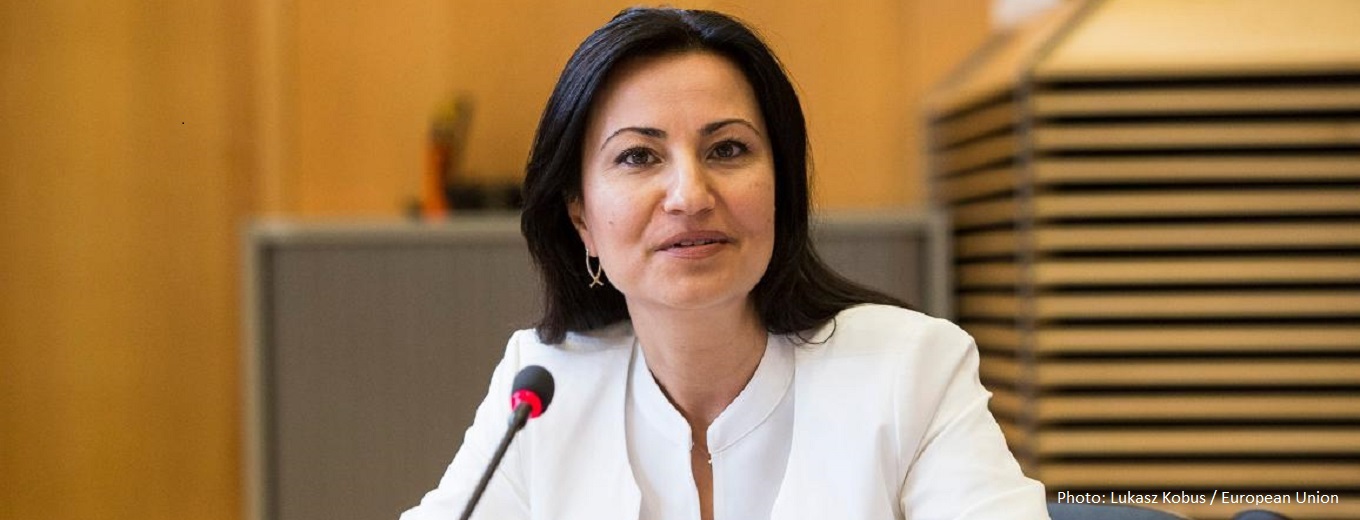Ahead of her hearing at the EU Parliament, Commissioner-designate Iliana Ivanova laid out her views on the future of the EU’s knowledge policies and programmes.
While August has been a calm month in Brussels when it comes to news on education, research, and innovation policies and programmes, there was one key publication of relevance for the future developments in these areas: Iliana Ivanova, Commissioner-designate for Innovation, Research, Culture, Education and Youth, submitted her written responses to an extensive questionnaire of the European Parliament (EP). The publication of Ivanova’s positions comes ahead of the hearing in the EP, which is organised jointly by the industry, research and energy committee (ITRE) and the culture and education committee (CULT) and will be held on 5 September. The hearing constitutes a crucial step towards Ivanova’s appointment as EU Commissioner. A vote is already scheduled during the EP plenary session of 11-14 September.
The questionnaire covers a wide range of crucial topics about the current state of play in EU education and R&I policies and programmes. Ivanova’s viewpoint show her support of the current policies and her openness to find solutions for pressing issues. She acknowledges the budget constraints in the Horizon Europe programme, illustrated by the fact that so far 71% of scientifically excellent proposals did not receive support due to lack of resources: “It is evident to me that the programme alone, even being the largest public funding programme for research and innovation in the world, cannot bridge the funding gap that we observe for many years now. This is why, if appointed, I will do my utmost to explore all possible sources of funding, from synergies with other programmes within the current Multiannual Financial Framework (MFF), and attracting additional national or private sources.” The Commissioner-designate also sees a link to association of third countries when it comes to the Horizon Europe budget: “Another example to attract funding is through association of like-minded countries, which has further increased the Horizon Europe budget, as in principle all associated countries are financially contributing.” In the case of the Erasmus+ programme, Ivanova recognises the pressure created by inflation and referred to the currently ongoing analysis. She intends to use the results of this analysis to argue for maintaining a high level of inclusiveness and accessibility in Erasmus+.
Her priority in R&I policies and programmes is “to safeguard Europe’s position as a world leader in science, research, and innovation by making sure that every euro in the existing budget is used in the most useful manner”, while encouraging more R&I investments and reforms and focusing on a successful implementation of Horizon Europe. The focus of the twin transitions will remain at the forefront in Horizon Europe under her leadership: “I am eager to continue our efforts to deliver on the European Green Deal and the digital transition.” She also promises to tackle persistent challenges of the European innovation Council (EIC), where she plans, if appointed, to work closely with other Commission services to clarify all outstanding issues. Another priority for Ivanova would be to pay particular attention towards stronger engagement of researchers from widening countries in Horizon Europe, for instance via measures ranging like targeted training, improving the quality of proposals, access of widening countries partners to selected consortia, ensuring the sustainability of the centres of excellence, and better integrating them into European networks.
Association to horizon Europe constitutes another key topic in the document: In the case of the United Kingdom, Ivanova referred to the ongoing talks between the Commission and the UK and expressed her hopes to find a common ground on the remaining issues in order that an agreement will soon be reached. In the case of Switzerland, Ivanova views association linked to the overall relations with the EU: “Negotiations with Switzerland will also be a priority for me in the context of the ongoing exploratory talks on the future of the overall EU-Swiss relationship.”
In the field of education, the Commissioner-designate views ‘Erasmus’ as “undoubtedly one of the most successful European brands”. She offers a glimpse into her thinking of the preparation of the post-2027 edition of Erasmus+: “I am particularly attached to the priority on inclusion and diversity.” When it comes to education policies, she acknowledges the “limited competences of the Union in the area of education”, however, promised to “do the utmost to encourage cooperation between Member States and support them while fully respecting their competences and responsibilities”. If appointed, she plans to work on the ongoing initiatives under the Commission’s remaining term of office until 2024 and “facilitate progress in the areas that need our particular attention towards making the EEA a reality by 2025”.
Similarly, Ivanova views achieving the European Research Area (ERA) as an area in which researchers, scientific knowledge and technology circulate freely as of crucial importance for Europe. In the case of ERA, implementing the package on research careers will be a priority for her. When it comes to the ERA governance, Ivanova’s views point to continuity, especially also when it comes to working with stakeholder: “If appointed, I will support an efficient and transparent ERA governance process, through the ERA Forum, bringing together Member States, associated countries and stakeholders, and I will remain fully open to explore all possible avenues to accelerate the achievement of the ERA.”

